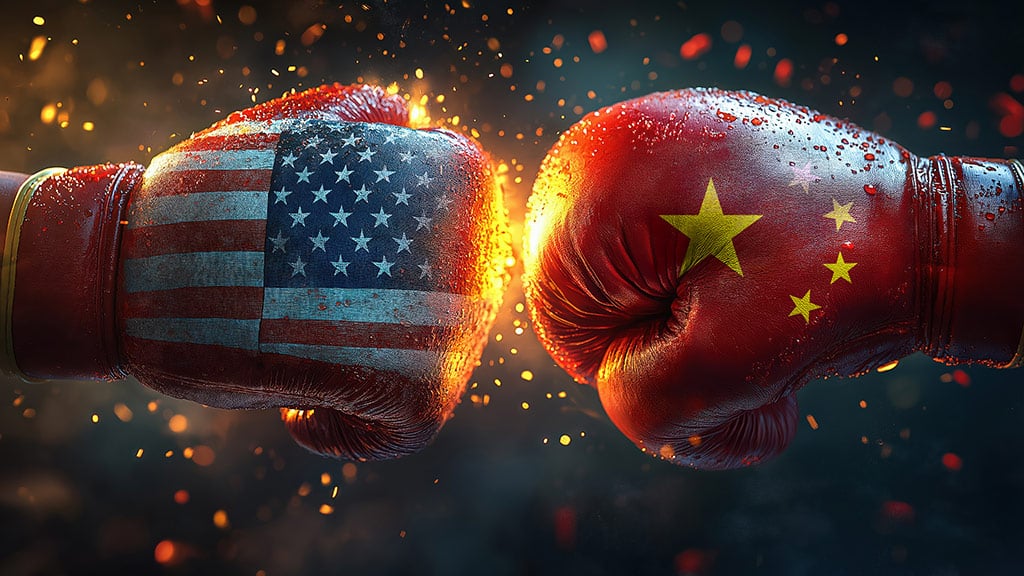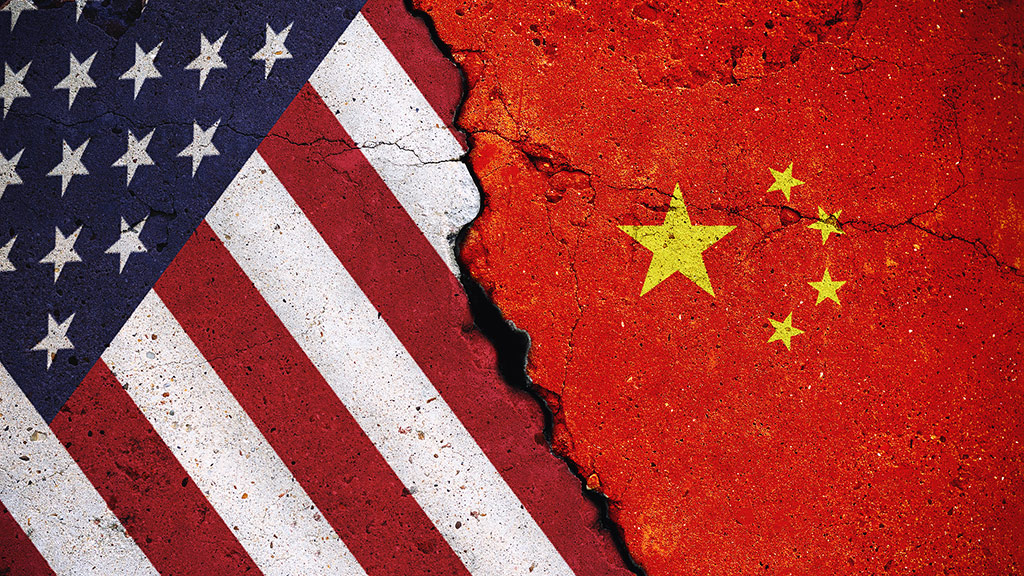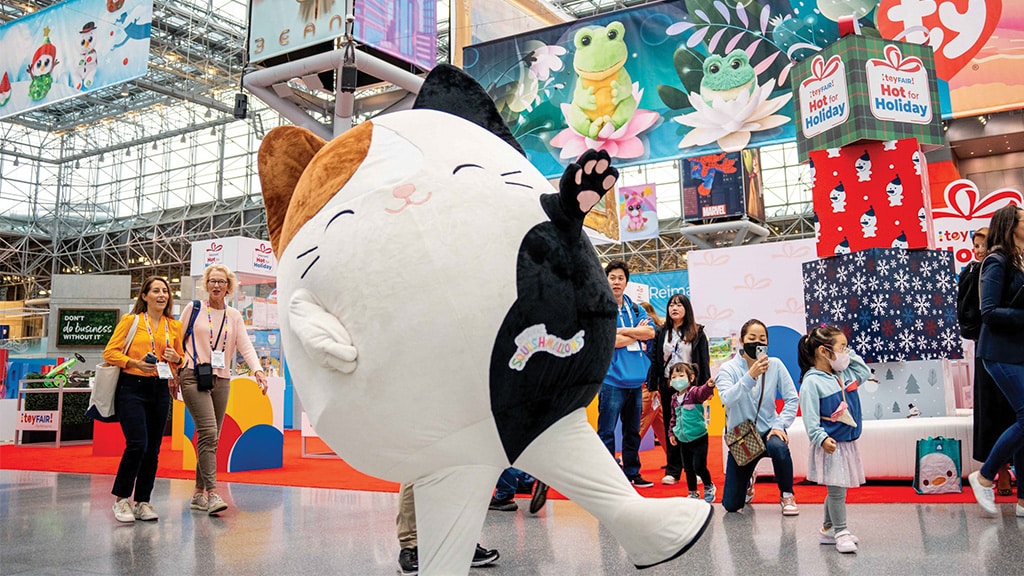One, two, three, four, let’s have a trade war.
As the dust settles from today’s latest tariff yo-yo trick, U.S. President Donald J. Trump and China President Xi Jinping have fired new shots in an escalating battle of tariffs and tough talk.
Following a 104% tariff on Chinese goods imported to the U.S. that went into effect at midnight, China struck back with an 84% tariff on the U.S. Hours later, President Trump took to his Truth Social platform, calling out “the lack of respect that China has shown to the world’s markets” while upping the tariff on Chinese goods to 125%.
At the same time, President Trump implemented a 90-day pause on reciprocal tariffs on other countries and lowered the base rate to 10%, effective immediately. According to the White House, more than 75 countries have called for renewed trade negotiations, and the 90-day pause will allow discussions to continue while easing economic fears.
While markets soared to record gains following days of record losses, the toy industry is hardly out of harm’s way. Around 80% of all toys and games imported to the U.S. are sourced from China, and a 125% tariff — paid for by the importer, not the Chinese government, as often touted — will drive up retail prices, squeeze margins, and potentially crush smaller toymakers still recovering from the triple-punch of pandemic disruption, shipping chaos, and inflation.
“It’s incredibly problematic,” Greg Ahearn, President and CEO of The Toy Association, told The Toy Book this afternoon. “Everyone is caught up in the economics of this, but they’re missing the human side of the equation. By back-to-school season, products could see a 35% — or higher — price increase. It will put pressure on American families while limiting access to toys that are critical to child development.”
Keeping Toys Tariff-Free
The Toy Association is leading the charge in advocating for tariff-free toys, engaging industry influencers in the manufacturing space to amplify unified messaging as the Association and its Chief Policy Officer, Kathrin Belliveau, build a global coalition dedicated to ensuring toys, games, and tools for play are excluded from tariffs.
“We’re working two sides of the coin,” Ahearn explains. “On one side, we’re working externally, communicating with the U.S. Trade Representative, the Senate, and Congress, trying to get in and make our points. We’re getting in front of the media, showing up where the industry should show up, and spreading the message of what toys mean. And we’re always looking for ways to engage with those who make policy.”
On the other side of the coin, Ahearn adds, the Association is focusing on internal communication within the toy industry. “There is so much information coming in that some companies, particularly the smaller ones, can’t keep up,” he says. “We’re providing clear, concise communications to keep them informed while reminding them that everyone has a voice, from the smallest to the biggest companies.”
At press time, more than 20 international associations and partner organizations have co-signed a united statement against tariffs on toys. Additionally, some countries, starting with Vietnam, are stepping up and calling for a 0% for 0% global tariff agreement to ensure uninterrupted access to safe, affordable toys.
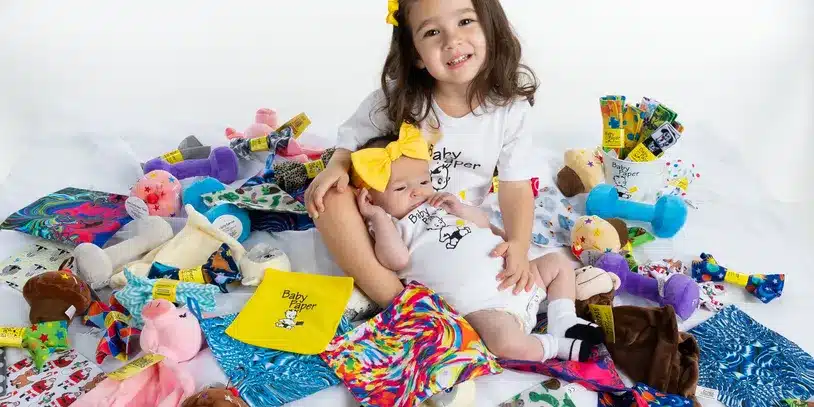
“Tariffs are Crushing the Little Guys”
That message, sent out in an e-blast today by Baby Paper founder Sari Wiaz, needs to be heard by the Trump administration as the whopping 125% tariff on China kicks in.
“Here’s the reality: small manufacturers like us at Baby Paper are nearing a breaking point,” she said. “We don’t move goods in massive volumes. We can’t stockpile inventory — it would drain our cash flow. And unlike big brands, we can’t just raise prices to absorb tariffs and still stay competitive.”
According to data from The Toy Association, 96% of U.S. toymakers, distributors, and wholesalers are small businesses like Baby Paper.
“We’ve been told, ‘Just wait — it’ll be great,’” Wiaz wrote. “Maybe that’s true for the big players. But small brands won’t make it through the wait. We’ll end up selling off what’s left and shutting our doors — not because of a failed product, but because policy made survival impossible.”
As the Wall St. crowd pats itself on the back after today’s rally, the reality is that the situation with China could not be worse.
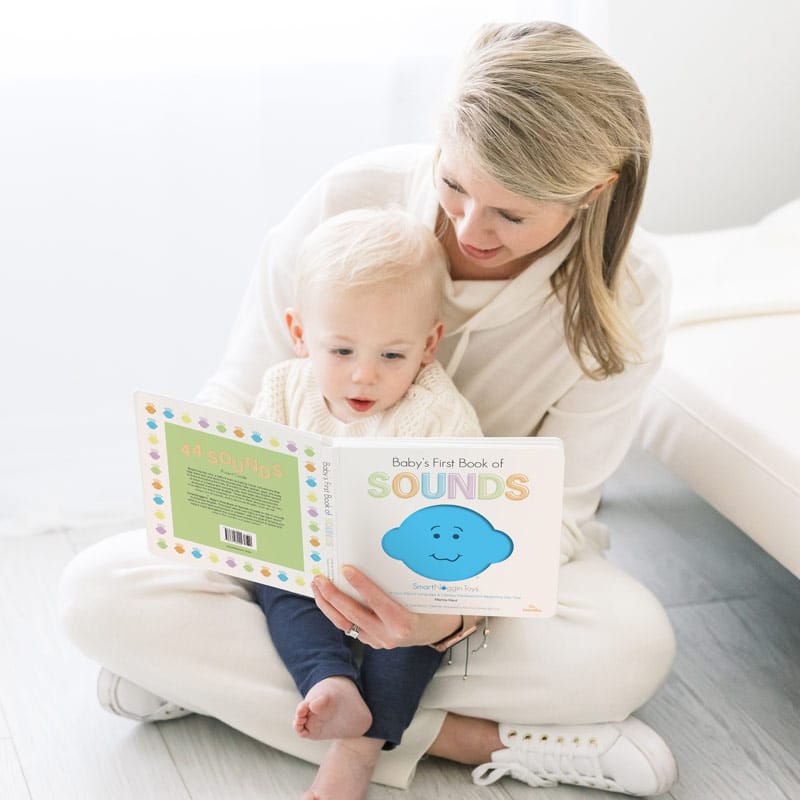
“I created SmartNoggin Toys with the mission of helping to encourage babies’ critical developmental milestones beginning at birth, with the hope of lessening and preventing developmental delays,” explains Marcia Haut, Founder of Maryland-based SmartNoggin Toys. “Our products are being used nationwide by therapists, healthcare providers, early childhood educators, and parents to help make our mission possible. We sought to have our products produced in the U.S. but have not been able to do so. We have a great manufacturing partner based in Hong Kong and China, where at least 80% of all toys are currently produced. Unfortunately, the recent tariffs more than double our production costs — which we, not China, must pay — and will increase the costs for all U.S. consumers.”
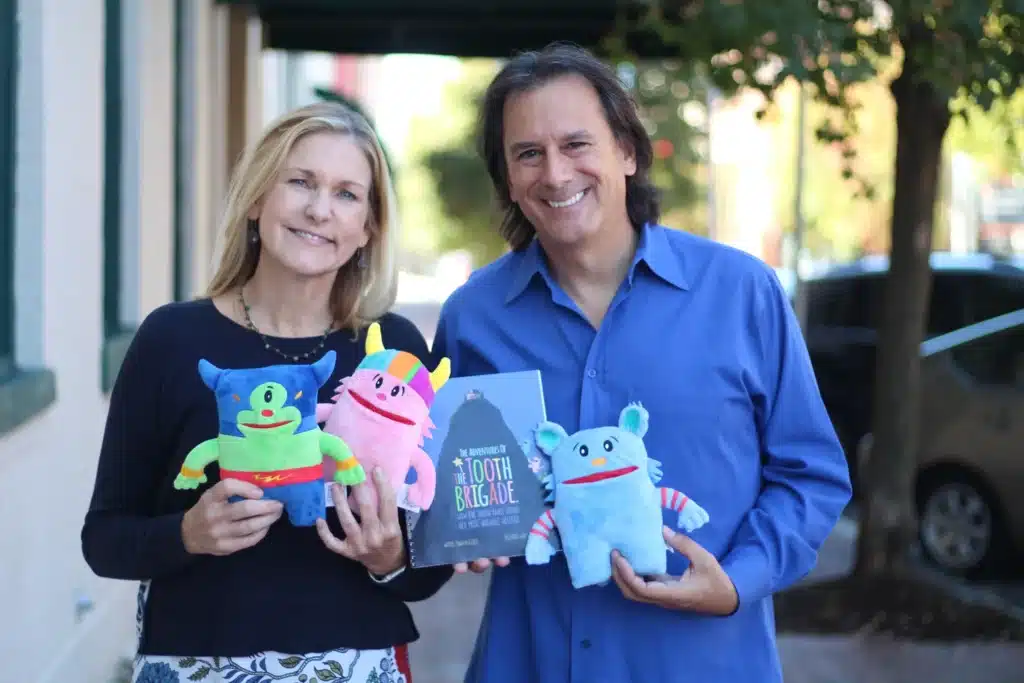
Sharon Azula, co-founder of Virginia-based It Helps to Play, faced a familiar plight in 2019 when her company sought domestic manufacturing for its flagship line of Tooth Fairy pillows and storybooks, The Tooth Brigade.
“Initially we aimed to manufacture in the U.S.,” she says. “We printed our first run of books domestically, but quality issues and very high costs led us to seek alternatives overseas. For our plush tooth pillows, viable U.S. options were extremely scarce. We couldn’t find any factories in the U.S. to sew our plush. We even considered having them sewn overseas and stuffed in the U.S., but the only company offering that service had gone out of business.”
Having collaborated with several factories in China over the past six years, Azula enjoys “excellent relationships” with her company’s plush supplier and book printer. Now, that business is in jeopardy.
“The tariffs will make it extremely difficult for us to continue to operate, and we may not to be able to stay open,” she says. “There are still no viable options to have our plush sewn domestically. And our books would cost 325% more to be printed in the U.S.”
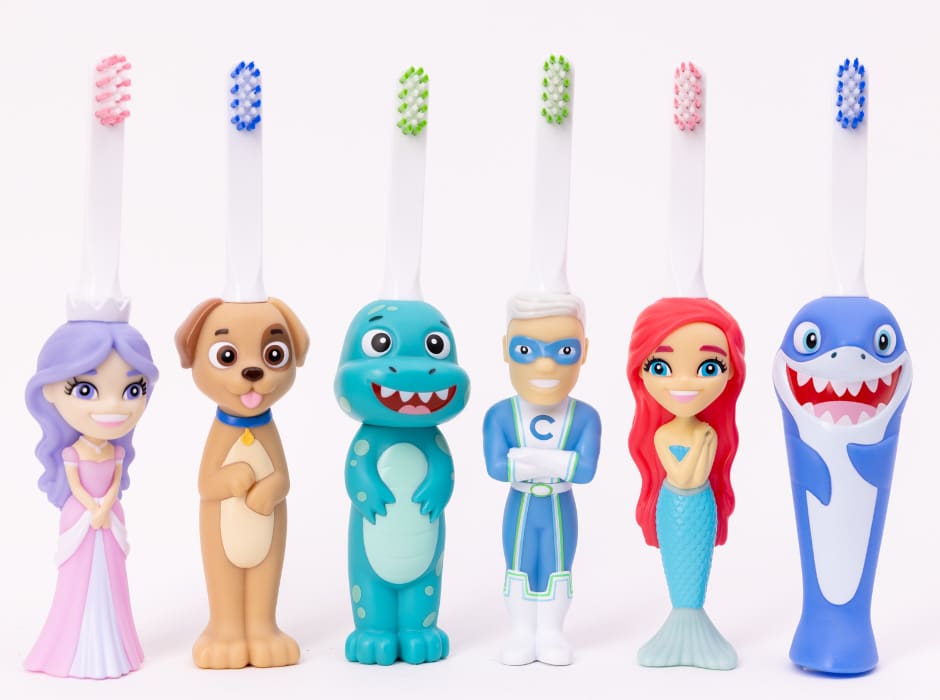
Tariffs are also stifling growth for companies such as California-based Toothbrush Toys and Starlux Games. While Starlux Founder Judd King calls on the U.S. International Trade Commission (USITC) with a pointed request — “Please don’t ruin Christmas.” — Toothbrush Toys Founder Nicolette Warren is trying to figure out a new plan for the future.
“As a small business owner, I’ve been working hard in hopes of receiving opportunities like the ones I’ve recently been presented with,” explains Nicolette Warren, Founder of Toothbrush Toys. “Unfortunately, these tariffs have come at the worst possible time. The growth opportunities I’m pursuing require additional inventory production, and I’m unsure how or when I’ll find an alternative solution. I’m unable to absorb the tariff costs and am not in a position to raise my retail prices.”
As of this evening, several small to medium-sized toymakers have paused shipments out of China while awaiting word of a trade truce.
Retail Roulette
Consumers likely haven’t seen much, if any, impact on retail prices yet, but that will change as the war with China continues. One lever that many companies have pulled saw product orders pulled forward, but a statement issued by the National Retail Federation this morning signals an end as imports are expected to drop sharply in the coming weeks.
“Retailers have been bringing merchandise into the country for months in attempts to mitigate against rising tariffs, but that opportunity has come to an end with the imposition of the ‘reciprocal’ tariffs,” said NRF Vice President for Supply Chain and Customs Policy Jonathan Gold, reiterating that “Tariffs are taxes on U.S importers ultimately paid by consumers.”
“[Tariffs] are creating anxiety and uncertainty for American businesses and families alike with the speed at which they are being implemented and stacked upon each other,” Gold added. “At this point, retailers are expected to pull back and rely on built-up inventories, at least long enough to see what will happen next.”
Still, there might be one upside, albeit short-lived. Sources tell The Toy Book that retail foot traffic has seen an uptick this month, perhaps fueled by a sense of urgency to buy before price hikes in addition to a late Easter bump.
Meanwhile, the American Specialty Toy Retailing Association (ASTRA) has enlisted Desmond Consulting Services, led by Toy Association vet Edward Desmond, to address tariffs and other concerns on behalf of its members.
In an email sent earlier today, ASTRA President Sue Warfield said, “Ed is scheduling meetings on Capitol Hill for early next week to visit certain House and Senate offices on behalf of ASTRA, noting the importance of small retailers and small manufacturers to the economy and the devastating impact of tariffs on small businesses, their employees, and the communities in which they reside.”
The Weeks Ahead
What happens next is yet another wildcard in what’s already been a year filled with chaos and conflict.
“Uncertainty, heightened concern, and confusion — it’s paralyzing,” The Toy Association’s Ahearn adds.
While the myth of American job creation tied to manufacturing persists (more on that here), the U.S. toy industry supports nearly 700,000 American jobs — not counting indirect positions in adjacent industries like marketing, freight, and retail — with more than $157 billion in economic impact, most of which stays within the U.S.
“Tariffs will not create jobs. Especially in our industry, they will kill jobs,” says Jonathan Cathey, Founder and CEO of California-based The Loyal Subjects, and a member of a family with a legacy of longshoremen at the biggest ports in North America. “I’m ‘Small Business Joe,’ and I’m proof positive of how global trading and sourcing have positively impacted people’s lives, both financially and in total quality of life. We toymakers enhance not just child development; we impact the economy, job creation, and wealth creation and are a wellspring of small business creation.”
Right now, the most important thing anyone working within the U.S. toy industry can do is raise their voice and amplify those around them.
Join the movement. Get loud. Help #KeepToysTariffFree

